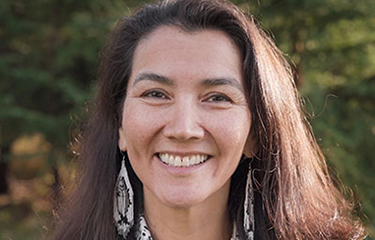U.S. Representative Jared Huffman (D-California) and U.S. Rep. Mary Peltola (D-Alaska) have introduced the Coastal Seaweed Farm Act of 2023, a bill directing NOAA and the U.S. Department of Agriculture (USDA) to produce a joint study evaluating the benefits and impacts of coastal seaweed farming.
The bill would also create the Indigenous Seaweed Farming Fund, a grant program to reduce cost barriers for indigenous communities to get involved in coastal seaweed farming.
“The climate is changing, and as we work to mitigate its impacts and reduce damage, we also have a responsibility to find smart, sustainable alternatives to how we do things. Coastal seaweed farming has tremendous potential to serve as a sustainable replacement in food products, fertilizer, and animal feed; and it comes with a myriad of benefits for coastal communities – supporting local economies, providing food security, and regenerating marine ecosystems,” Huffman said in a press release. “We also want to ensure equity in this field so that indigenous people can continue benefiting from the industry – so our bill creates a grant program to reduce cost barriers for native communities, many of whom have farmed seaweed for thousands of years.”
Specifically, the Coastal Seaweed Farm Act directs NOAA and the USDA to study and publish a report on the benefits and impacts of coastal seaweed farming on the marine ecosystem; Develop regulations and establish evaluation metrics based on the study to ensure coastal seaweed farming, siting, and operations maximize potential benefits and avoid adverse impacts on the ecosystem, wildlife, fisheries, and local communities; Collaborate with the Interagency Working Group on Indigenous Traditional Ecological Knowledge, states, tribes, local governments and other federal agencies on best practices; Develop food safety regulations on farmed seaweed in coordination with the U.S. Food and Drug Administration; And provide educational materials for the training of incoming coastal seaweed farmers, prioritizing indigenous communities after the study is complete.
Eligible entities for the Coastal Seaweed Farm Act’s Indigenous Seaweed Farming Fund include federally recognized Tribes, Native Villages, Native Hawaiians, Pacific Islanders, Native people of Puerto Rico and U.S. Virgin Islands, state-recognized Tribes, and Alaska Native Corporations.
The fund would provide grants to Indigenous communities to support coastal seaweed farming, including for purchasing equipment, obtaining, planting, and operating a coastal seaweed farm as well as processing, transporting, and storing seaweed; Use coastal seaweed farming for restorative ecological functions; And require USDA and NOAA to provide outreach to eligible entities, solicit comments, and recommendations on each stage of operation of the grant program.
“Alaska and our Indigenous cultures have been leading the way in mariculture and responsible ocean harvesting for thousands of years,” Peltola said. “From seaweed to kelp to shellfish, Alaska has been at the forefront of what is now being called the blue economy. I’m proud to cosponsor this bill with my colleague, Rep. Huffman, to establish a framework for applying Alaskans’ knowledge and experience to a burgeoning new industry. This act recognizes Alaska’s unique environment and the crucial relationships between our coastal and near-coastal communities, Tribal organizations, and Alaska Native Corporations, all of which are part of this sector. I believe that this bill can make a positive impact on issues of food security, sustainability, and ocean health, and I look forward to working on it together.”
The bill has been endorsed by the Environmental Defense Fund, the National Audubon Society, the New England Aquarium, the Monterey Bay Aquarium, Don’t Cage Our Oceans, Native Conservancy, and the Urban Ocean Lab.
“Seaweed absorbs carbon pollution and acts as a nursery for the little fish that coastal birds rely on for food,” National Audubon Society Marine Conservation Policy Manager Romaric Moncrieffe said. “Seaweed farming is a new industry, and the Coastal Seaweed Farm Act will ensure that it starts off on the right foot, researching any potential impacts to birds, fisheries, and coastal habitats.”
U.S. Senator Edward J. Markey (D-Massachusetts) has sponsored the bill in the U.S. Senate, a move backed by John Mandelman, the vice president and chief scientist of the Anderson Cabot Center for Ocean Life at New England Aquarium.
“The New England Aquarium supports the Coastal Seaweed Farm Act of 2023 as an important step in the responsible development of the nation’s nearshore seaweed farming industry. The act’s wide-ranging coverage provides for the consideration of impacts to wildlife associated with aquaculture gear and practices alongside consideration of inclusivity and workforce development. We commend Representative Huffman, Representative Peltola, and Senator Markey’s leadership as champions of a blue economy, a priority for the New England Aquarium as we ensure both the conservation of wildlife and the responsible development of the nation’s future in domestic aquaculture production,” Mandelman said.
Photo courtesy of Office of U.S. Rep. Mary Peltola







